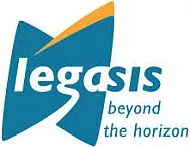- within Privacy topic(s)
- in Asia
- in Asia
- in Asia
As we move toward 2025, the global regulatory environment is poised for significant changes, influenced by rapid technological advancements, heightened sustainability efforts, and the increasing complexity of international business. Global trends such as tighter data protection regulations, including the EU's GDPR and California Consumer Privacy Act (CCPA), are setting a global standard for privacy and data security laws. Additionally, growing momentum for Environmental, Social, and Governance (ESG) regulations—evident through frameworks like the EU Corporate Sustainability Reporting Directive (CSRD)—is reshaping corporate transparency requirements, pushing companies to be more accountable in their reporting. With varying laws emerging across regions, businesses must navigate a fragmented regulatory environment while ensuring they comply with both local and international standards. For multinational companies, this means investing in robust compliance systems and ensuring adherence to global anti-corruption measures, such as the OECD Anti-Bribery Convention and the U.S. Foreign Corrupt Practices Act (FCPA). Technology-driven compliance solutions, including AI and blockchain, are becoming increasingly essential to help organizations meet rising regulatory demands and manage cross-border risks efficiently.
Preparing for a Regulatory Shift in 2025
Looking ahead, the pace of regulatory change is expected to slow after the "supercharged" years of 2023 and 2024, when regulators enacted a record number of new rules and intensified enforcement efforts. However, 2025 will still see significant shifts, influenced by legal challenges, potential Supreme Court decisions (such as the possible overturning of the Chevron Doctrine), and changes in leadership within regulatory agencies. Although new rulemaking may slow, areas like artificial intelligence (AI) and cybersecurity will remain high on regulators' agendas due to their growing importance for both business operations and national security.
Regulatory Landscape Post-Election
The outcome of the 2024 U.S. elections will also influence regulatory trends in 2025. If the Democratic party retains power, it is expected to continue the trend of high regulatory activity, with an emphasis on oversight, risk management, and compliance. A Republican victory could lead to a reduction in regulation, particularly in areas such as consumer protection, antitrust, and employee rights. However, irrespective of the election outcome, AI and cybersecurity will remain under intense scrutiny due to their societal and economic implications.
Key Compliance Trends for 2025
Generative AI and Compliance Readiness By 2025, generative AI will significantly transform how businesses operate, offering enhanced efficiency and reduced operational costs. However, as AI evolves, so too will its regulatory framework. Ethical concerns, transparency, and risk management will be critical areas of focus. Companies—especially in India—will need to comply with both domestic and international standards for AI deployment. Developing comprehensive governance frameworks to manage the risks associated with AI, while ensuring its benefits are maximized, will be a top priority.
Corporate Culture and Fraud Prevention Financial fraud prevention and promoting corporate transparency will remain central to corporate governance. In India, the Business Responsibility and Sustainability Reporting (BRSR) framework will continue to play a pivotal role, particularly as sustainability disclosures face stricter regulations. Companies will be required to build a culture of integrity, reduce fraud, and ensure robust third-party verification processes to align with growing ESG standards. These efforts will be vital for businesses aiming to strengthen their reputation and adhere to global transparency expectations.
Navigating Extraterritorial Laws As Indian companies expand their operations globally, compliance with extraterritorial laws such as the GDPR and FCPA will become increasingly critical. Compliance officers must ensure that businesses operate within the legal frameworks of multiple jurisdictions, focusing on issues such as data protection and anti-corruption. This will require an in-depth understanding of global regulations and the ability to navigate the complexities of cross-border compliance.
Technology-Driven Compliance Solutions The integration of advanced technologies like AI, machine learning, and blockchain will become indispensable for streamlining compliance processes. These technologies can help businesses automate workflows, improve transparency, and mitigate the risk of fraud. In India and globally, organizations will need to adopt these technologies to stay ahead of regulatory complexities and ensure that their compliance systems are both efficient and cost-effective.
Rising Demand for Skilled Compliance Professionals As the regulatory environment becomes increasingly complex, the demand for skilled compliance professionals will rise. By 2025, businesses will require experts who are well-versed in both domestic and international legal frameworks, understand the nuances of AI integration, and can navigate evolving regulations in areas such as data privacy and anti-corruption. Compliance officers will play a crucial role in helping organizations adapt to regulatory changes, manage legal risks, and ensure compliance across borders.
Conclusion: Embracing a Complex Compliance Future
The regulatory and compliance landscape in 2025 will be shaped by technological advancements, evolving legal frameworks, and a growing emphasis on corporate transparency and ethical business practices. Indian businesses, in particular, will need to stay ahead of trends in AI, cybersecurity, and global compliance standards to thrive in an increasingly regulated environment. To succeed, organizations must focus on adopting new technologies, strengthening governance structures, and ensuring alignment with both domestic and international regulations. By preparing for these shifts, companies can navigate the complexities of the future regulatory landscape and safeguard their long-term success.
References:
1. "The Impact of the 2024 U.S. Presidential Election on Regulatory Policy" – A report by the Brookings Institution or The Regulatory Review.
2. "Artificial Intelligence in Compliance: Key Trends and Regulatory Developments" – Articles from McKinsey & Company or Harvard Business Review that discuss the regulatory landscape for AI.
3. For India, reports by the NITI Aayog or Ministry of Electronics and Information Technology (MeitY) on AI frameworks.
4. India's Business Responsibility and Sustainability Reporting (BRSR) guidelines are published by the Securities and Exchange Board of India (SEBI).
5. ESG frameworks in India and globally can be referenced from Sustainability Accounting Standards Board (SASB), Global Reporting Initiative (GRI), or World Economic Forum reports.
The content of this article is intended to provide a general guide to the subject matter. Specialist advice should be sought about your specific circumstances.
[View Source]

